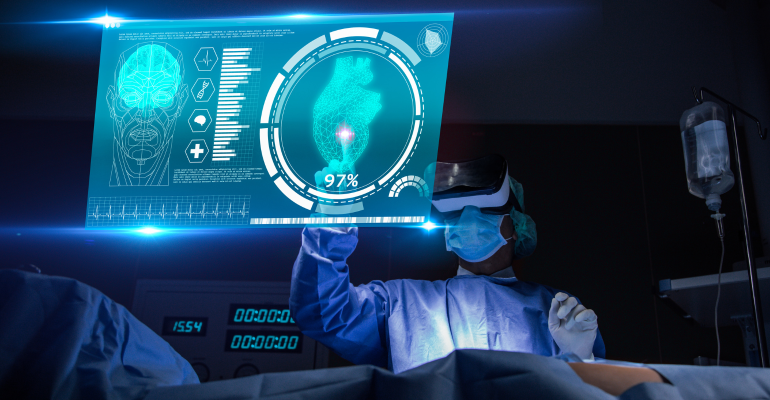Empowering the healthcare ecosystem for precision health transformation is crucial in our pursuit of a healthier future. By adopting cutting-edge technologies, patient-centric approaches, and data-driven insights, we can revolutionise healthcare. This article explores the fundamental steps needed to bridge the growth gap and unlock fresh opportunities in this transformative journey.
Patient education: empowering individuals for better health
One crucial aspect that often goes unnoticed is patient education. It is imperative to enhance consumer knowledge regarding health management, enabling them to lead healthier lives for longer periods. This entails educating individuals about health and wellness practices, helping them understand their health results (such as lab diagnostics, genomic findings, and other medical reports), and guiding them on disease management.
By prioritising patient education, healthcare providers can empower individuals to actively participate in their own well-being.
Improving healthcare access: building stronger infrastructure
Across Asian countries, enhancing healthcare access is a critical requirement. The Quintuple Aims —better patient experience, improved population health, reduced costs, enhanced clinician well-being, and optimised healthcare systems — can only be achieved by improving accessibility to care in these regions.
Related: Pioneering integrated diagnostics in precision medicine
While health equity and similar aims are emphasised in the Western region, the fundamental first step for the Asian region lies in enabling access to quality healthcare. This involves establishing robust infrastructure that supports the growing demand for medical services.
Digital tools as catalysts for transformation
To transition from sick care to healthcare, leveraging the vast array of digital tools available is essential. Incorporating these tools will help build an extensive digital data repository focused on healthcare. Data has become the new currency of the healthcare industry, enabling research on biomarkers — both digital and clinical — to uncover disease patterns and drivers of wellness. This wealth of information will enable precision health initiatives, empowering individuals to proactively pursue wellness based on personalised inputs derived from this data.
Related: Data-driven future of healthcare
Strengthening the ecosystem for seamless transition
The Think Tank highlighted several crucial elements that are currently missing from the healthcare ecosystem, inhibiting the transition from sick care to healthcare:
- Consumer and patient drive: The demand for healthcare transformation is increasingly being fuelled by younger, tech-savvy generations who are health-conscious. Their expectations and engagement are driving the need for change.
- Parallel wellness infrastructure: A parallel caregiving infrastructure focused on wellness is necessary to alleviate the burden on existing healthcare providers and systems, which are already overwhelmed with curative care. By shifting the focus towards wellness, the ecosystem can foster a proactive approach to healthcare.
- Seamless connectivity: Establishing appropriate connections between the wellness-focused parallel ecosystem and the existing curative infrastructure is vital. This ensures smooth patient handoffs at the right times, facilitating a holistic approach to healthcare delivery.
- Empowering patients: Equipping patients with the knowledge and skills to manage their own health is crucial for a successful transition. By providing comprehensive health and wellness education, individuals can take charge of their well-being, reducing their reliance on acute care and fostering a preventive mindset.
Conclusion
By prioritising patient education, improving healthcare access, leveraging digital tools, and strengthening the healthcare ecosystem, we can bridge the growth gap and unlock unprecedented growth opportunities.
With a collective focus on these critical areas, healthcare stakeholders can drive meaningful change, leading to a future where individuals are empowered to manage their health and well-being effectively.
Consolidated views of Reenita Das, Partner, Senior Vice President, Frost & Sullivan; G. Sarvanan, Group Chief Information Officer, Thomson Hospital; Dr. Ali Tinazli, CEO, lifespin GmbH; Sebastian Guhrs, Head of Investment, Aescuvest.
This article appears in Omnia Health magazine. Read the full issue online today.
To know more about The Precision Health Transformational Journey and upcoming Frost & Sullivan Growth Council Think Tanks, click here


